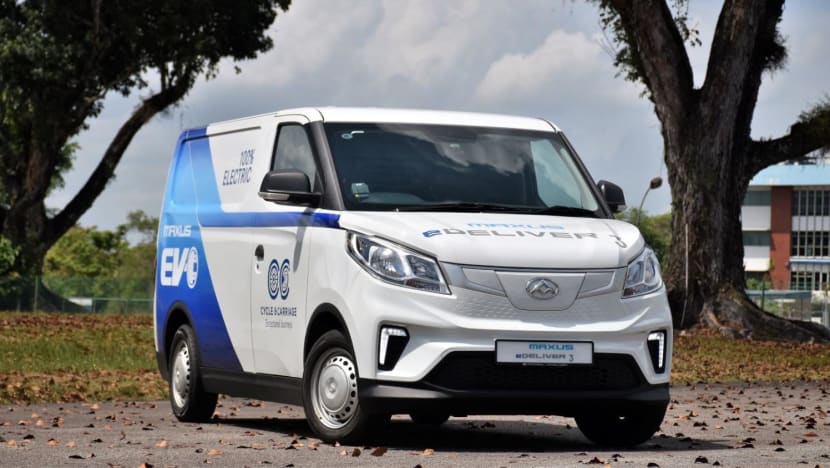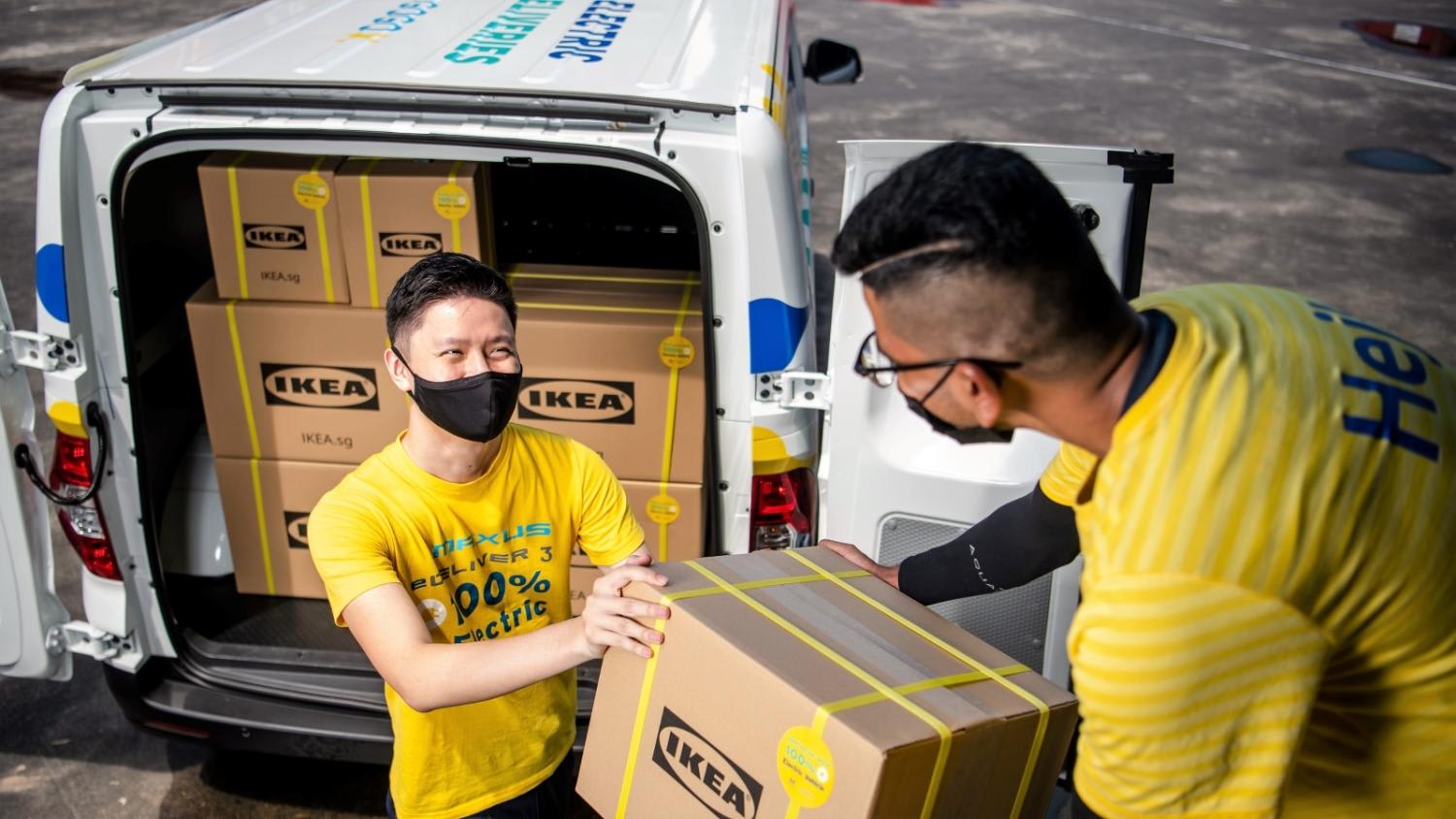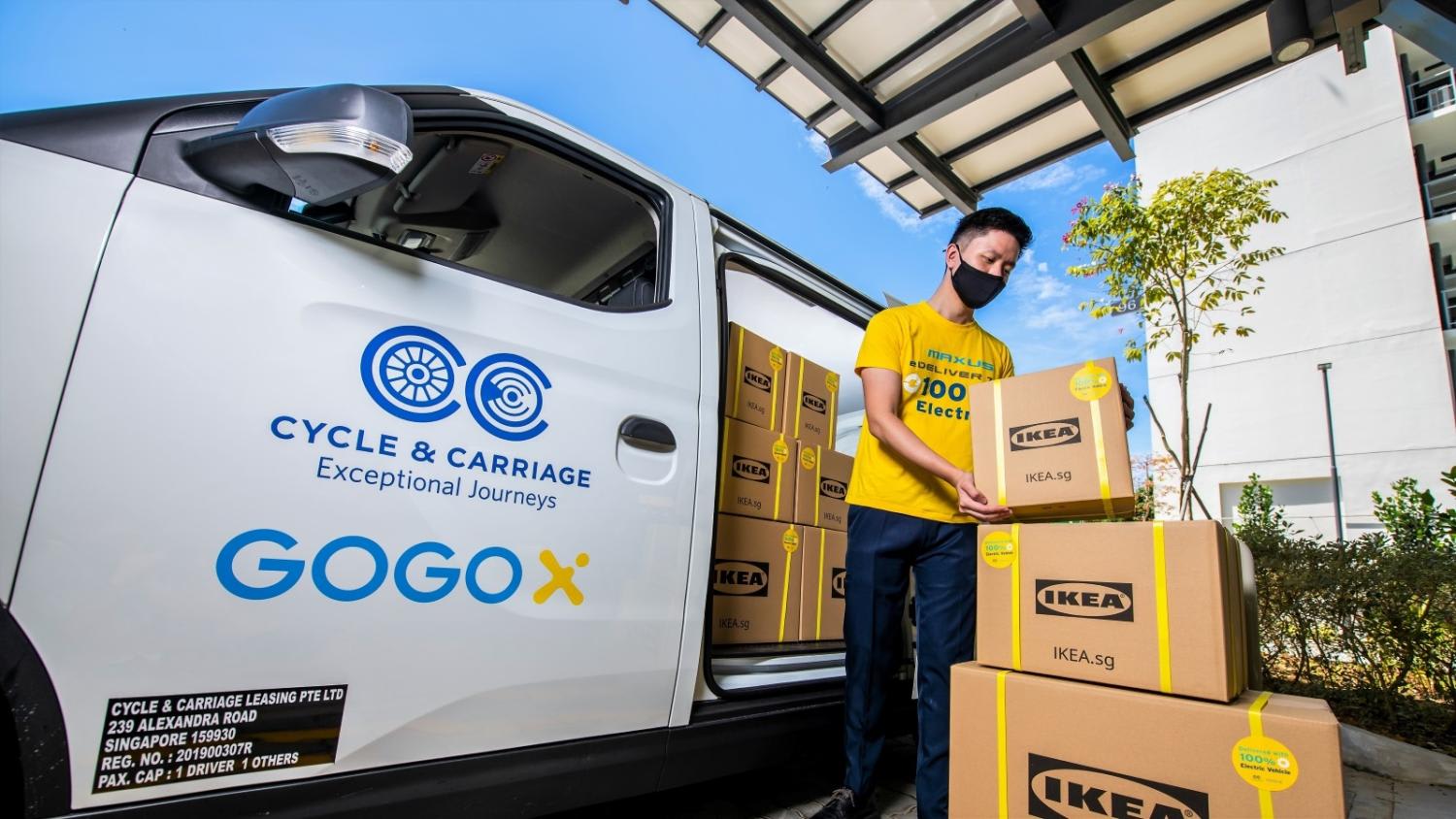Taking the green route to reducing costs and emissions
Electric vehicles are helping more companies in Singapore discover an effective way to drive their efficiency, literally.

Electric vehicles have fewer components to maintain than vehicles powered by internal-combustion engines. This helps firms reduce maintenance costs. Photo: CarBuyer Singapore
Business owners don’t have it easy. Meeting customers’ expectations and coping with pandemic-fuelled uncertainties are just some of the challenges that come with being your own boss.
Keeping costs in check is also high on the agenda, which is partly why more companies are turning to electric vehicles (EVs). Besides helping to reduce operating costs, EVs can lower the carbon footprint of businesses as well, which is a significant priority for many.
In Singapore, the deployment of infrastructure to support EVs is ramping up, with 60,000 charging points slated to be installed around the island by 2030.
In line with the Singapore Green Plan 2030 and to encourage businesses to switch to cleaner vehicles, business owners can tap into the Commercial Vehicle Emissions Scheme (CVES). This scheme classifies commercial vehicles into three bands according to the level of pollutants they emit, with the cleanest vehicles qualifying for a government cash rebate of S$30,000 paid out over three years.
GREEN, LEAN CARGO MACHINE

The Maxus e Deliver 3 is a commercial EV that is a serious contender.
Its cargo area easily fits a double-bed frame from IKEA, and with its class-leading payload of 905kg, transportation of your company goods will be a breeze.
The van is equipped with sliding doors and rear doors that open 180 degrees outwards, making it easy for forklifts to load cargo directly into the vehicle.
The Maxus e Deliver 3 is also a long-distance champ – it can cover more than 240km on a single charge, even when carrying 70 per cent of its maximum load capacity.
A fast DC charger takes its battery from 0 per cent to 80 per cent in about 45 minutes – just about the time it takes a delivery driver to refuel his stomach.
NUMBERS AND SENSE
When it comes to the operating cost of an EV versus a van equipped with an internal-combustion engine, the comparison isn’t even close: Assuming 200km a day of daily use, the Maxus e Deliver 3 requires an estimated S$8,216 a year in energy costs. This assumes public AC charging costs* of S$0.4366 per kWh, fast DC charging costs* of S$0.5162 per kWh, and usage of both in equal proportion for 200km a day.
Fuel costs for a comparable diesel-engined vehicle are about 57 per cent higher (assuming S$2.31 per litre of diesel*), while a petrol-engined one costs 245 per cent more (assuming S$2.76 per litre*).
With EVs, there are also savings to be had from smaller maintenance bills and vehicle downtime.
“An EV has fewer parts to maintain, so there’s less downtime for breakdowns,” said Mr Chow Chin Siong, a director at Digo Corporation. “We are motivated by the lower cost of ownership, mainly from the long-term savings from lower maintenance and running costs.”
The engineering firm operates a fleet of both EVs and vehicles with internal-combustion engines. With the Maxus e Deliver 3, it expects to save around 25 per cent in maintenance and repair costs alone.
A GREEN BOOST

Switching to EVs makes a meaningful difference to the planet. On a well-to-wheel basis, for every Maxus e Deliver 3 a company operates, it can reduce its carbon footprint by 1,650kg of CO2 emissions over a comparable diesel van. Well-to-wheel refers to the measurement of a product’s environmental impact over its lifespan.
That is one of the motivations behind a three-way partnership among Cycle & Carriage (the authorised distributor for Maxus), logistics company GOGOX and IKEA, which aims to enable zero emissions for last-mile deliveries from the IKEA Alexandra store.
With just two Maxus e Deliver 3 vans, the partners calculate that they will reduce the carbon emissions from these deliveries by an estimated 33,000kg over the coming decade. This is equal to the emissions from charging 4 million smartphones or burning 16.3 tonnes of coal.
“This a great example of the kind of collaborative action needed to tackle climate change, and it’s made possible because Singapore is paving the way to a low-carbon economy with incentives and infrastructure,” said Ms Corinna Schuler, corporate communication and acting sustainability director for IKEA Southeast Asia.
She added that IKEA aims to fulfil all its home deliveries through EVs or other clean transport solutions by 2030.
ELECTRIFIED OPTIONS
Cycle & Carriage has rolled out a comprehensive suite of Electric Mobility Solutions that caters to every aspect of its fleet customers’ sustainability journey.
Its solutions are customised according to specific business needs. They include leasing EVs, providing specialised consultations on the most suitable electric charging options, and turn-key logistics services such as pick-up and delivery.
The Maxus e Deliver 3 is just one example of how an electric van can be more economical to refuel and cheaper to keep in running condition while helping a company meet its sustainability goals.
For many businesses, the drive to efficiency can be a relentless one, but switching to electric power can make it a meaningful one, too.
To find out how switching your fleet to electric power can benefit your business, WhatsApp 6470 8686 or visit maxuscnc.sg.
*Energy and fuel costs as of Feb 8, 2022.















